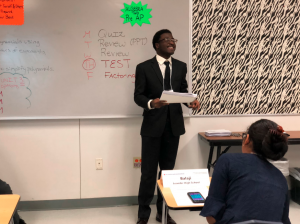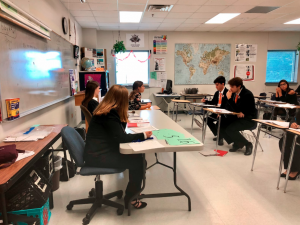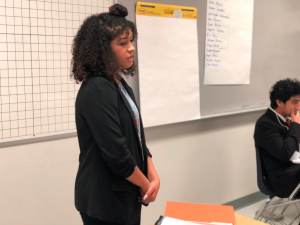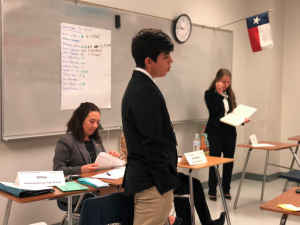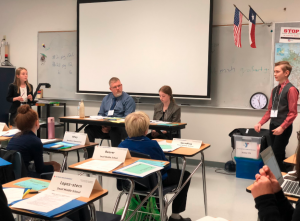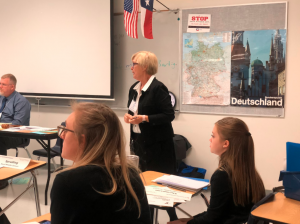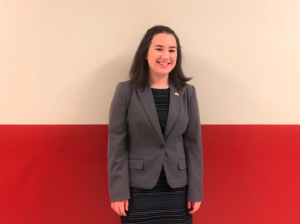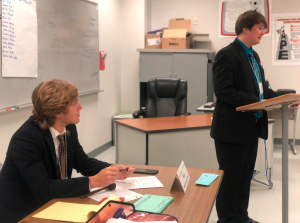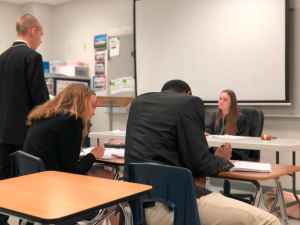Support Texas YG this Giving Tuesday
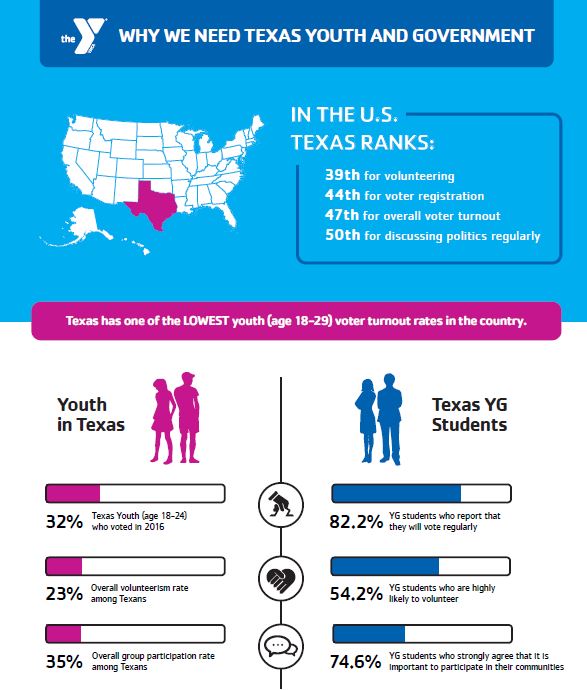
Did you know that among all of the United States, Texas is ranked 39th for volunteering, 47th for voter turnout, and 50th for discussing politics regularly? The YMCA Texas Youth and Government program recognizes these rankings and strives to make a difference. Our program prepares students through education and hands-on experience to commit to voting, volunteering, and participating in their community. Tomorrow, on Giving Tuesday, we hope you consider contributing to our mission of helping Texas teenagers become responsible citizens through civic engagement and participation. Your gift will allow one of more than 2,000 students to attend our State Conference where they will practice the interworking aspects of our government and gain the confidence to express their opinions. Help a student attend our State Conference by donating on our website at https://ymcatexasyg.org/donate/.


